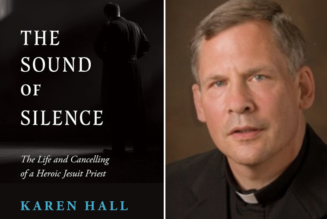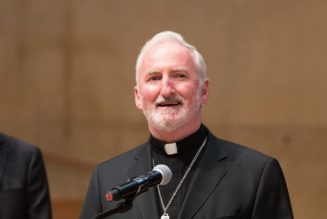25th Sunday in Ordinary Time
By Fr Victor Feltes
What is the act of eating for? It is good for eating and drinking to be enjoyable, but they are intended for supporting life. What if people tasted but refused to consume? What if it became common and culturally accepted for people to eat and expel their meals without digestion? A normalization of bulimia would obviously be very unhealthy. It would be psychologically unhealthy — warping attitudes about food and our bodies — and also physically unhealthy, leading to malnourishment and the death of many. However, new technologies, products, and politics would rise to promote this way of life despite its harms. The divine purpose for eating and drinking is our nourishment. It is not merely for our delight but for the good of supporting life. As Jesus once taught in a conversation about marriage, “What God has joined together, no human being must separate.”
Did you know, less than one hundred years ago, all Christian denominations opposed contraception? Contraception is an intentional act, before, during, or after a marital embrace to render it unfruitful. It is like the priest at Mass consecrating the wine while refusing to consecrate the bread; a distortion which is not how the Lord wills us to renew our covenant. Natural and artificial forms of contraception are nothing new. Scrolls from 1850 B.C. describe various Egyptian methods, and pagans practiced contraception in the Roman Empire. Church Fathers like St. Clement of Alexandria, St. Augustine, and St. John Chrysostom condemned contraception and sterilization. Protestants like Martin Luther (the founder of Lutheranism), John Calvin (the founder of Calvinism), and John Wesley (the co-founder of Methodism) all wrote against contraception as well. Naturally, not every occasion of marital union creates new life. But until about a century ago, all groups of Christians agreed that whenever a husband and wife renewed their one-flesh union, they must be open both to love and the possibility of life.
In 1917, the Anglicans called contraception “demoralizing to character and hostile to national welfare.” But then, in 1930, they became the first Protestants to officially approve the use of contraception in limited cases. By the 1960s, most Protestants had changed their previous teachings. The Catholic Church, however, stood firm in the unchanging truth. At the end of 1930 and again in 1968, popes reaffirmed the constant teaching of Christ’s Church on the nature, purpose, and goodness of marriage and the marital act. In 1968, St. Pope Paul VI warned that great harms would come from the acceptance use of contraception: broadly lowered morality, increased marital infidelity, lessened respect toward women, coercive impositions by governments, and the self-destructive belief that we have unlimited dominion over our bodies and human life in general. Advocates for contraception insisted back then that it would increase women’s happiness, strengthen marriages, prevent unplanned pregnancies, and reduce abortions. But today in our country, after decades of widespread contraceptive use, women report lower levels of happiness, nearly half of pregnancies are unplanned, nearly half of marriages end in divorce, and every year an estimated one million unborn children are murdered.
Powerfully driven by modern media, one false cultural idea has led to another. Contraception promises couples child-free relations, so when a child is conceived that child is viewed as a mistake for which his or her parents do not feel personally responsible, making abortion seems like an acceptable solution to the problem of an unwanted human being. When contraception strips away the idea of the creation of children as a primary purpose for marital relations, marriage need not require a man and a woman. From there, it is hard to explain why marriage need be limited to only two people who love each other. Once sexuality becomes detached from human biology, gender identity becomes easily confused. Where sexuality is viewed as exclusively for pleasure, unchastity grows and interest in marriage itself collapses. On the other hand, spouses who respect the God-given meaning of sexuality and are aware of their fertility levels throughout the month can faithfully practice Natural Family Planning (or NFP) as a safe and reliable way to space or postpone the conception of children. These couples are statistically less likely to divorce and grow together in communication, self-control, and intimacy.
The world, hostage to its passions, does not welcome the Catholic Church’s message but instead attacks the messenger. The crowds foretold of in the Book of Wisdom say, “Let us beset the just one, because he is obnoxious to us; he sets himself against our doings…” Jesus suffered in this way before us. Even Jesus’ apostles began with worldly views on many things. For instance, they argued over who among them was the greatest. Following Jesus requires our repentance, turning to him for mercy and healing which he lovingly extends to us in confession, whatever our past sins may be. Christ’s love redeems us. From there, we are called to imitate him, carrying our crosses for God and each other, growing in virtue, growing in the gift of self, and growing together in love.
To follow Jesus requires humility, to confess and turn away from our sins, and to be open, teachable, and trusting in Christ. Jesus, taking a child, put his arms around it and said, “Whoever receives one child such as this in my name, receives me; and whoever receives me… receives the One who sent me.” So let us love purely and be open to life, welcoming, protecting, and cherishing all little ones, for the person who loves these least ones is loving Jesus Christ.









